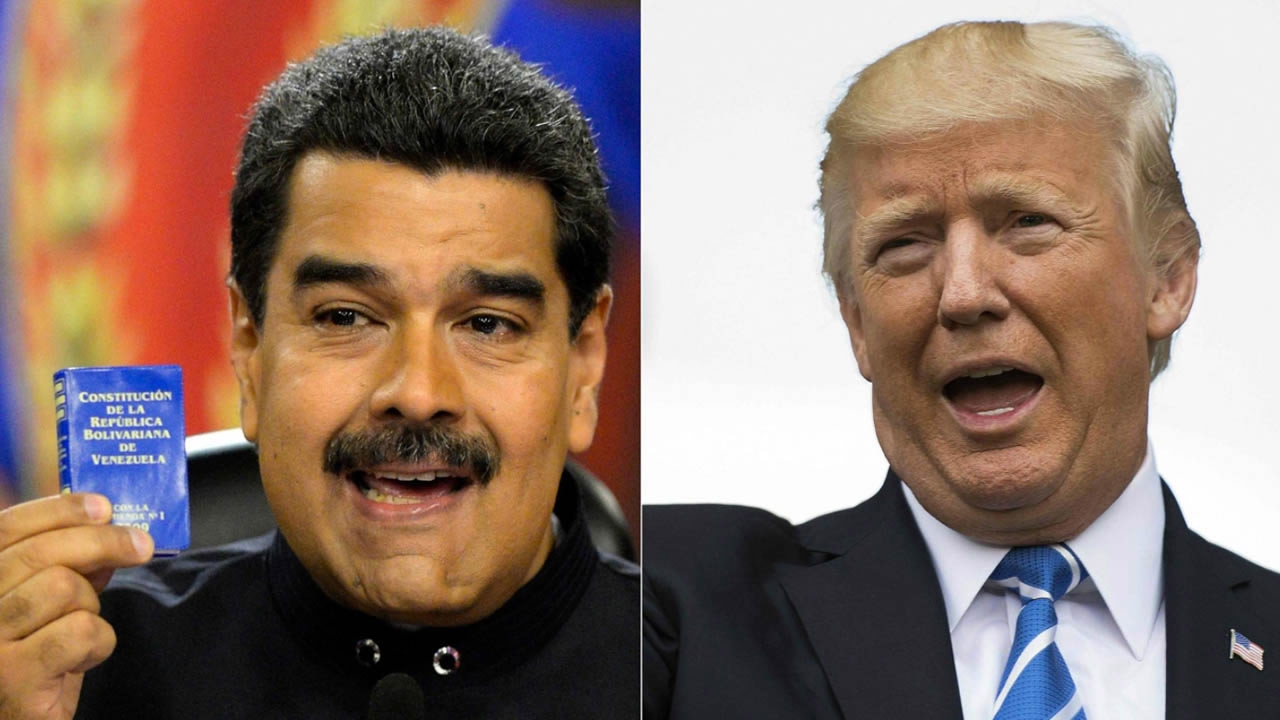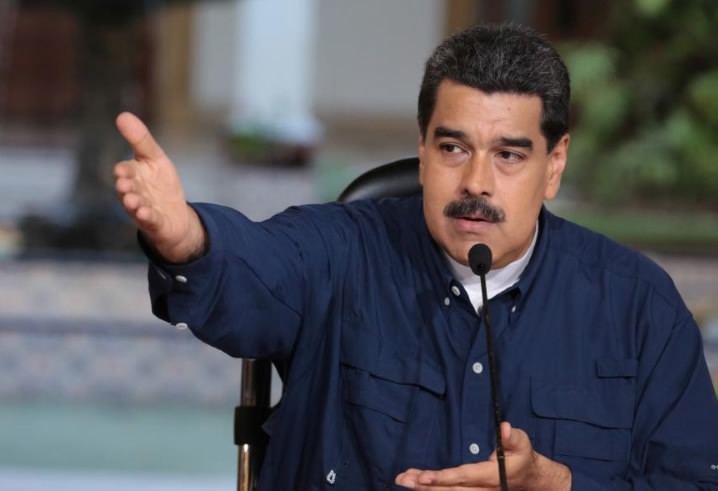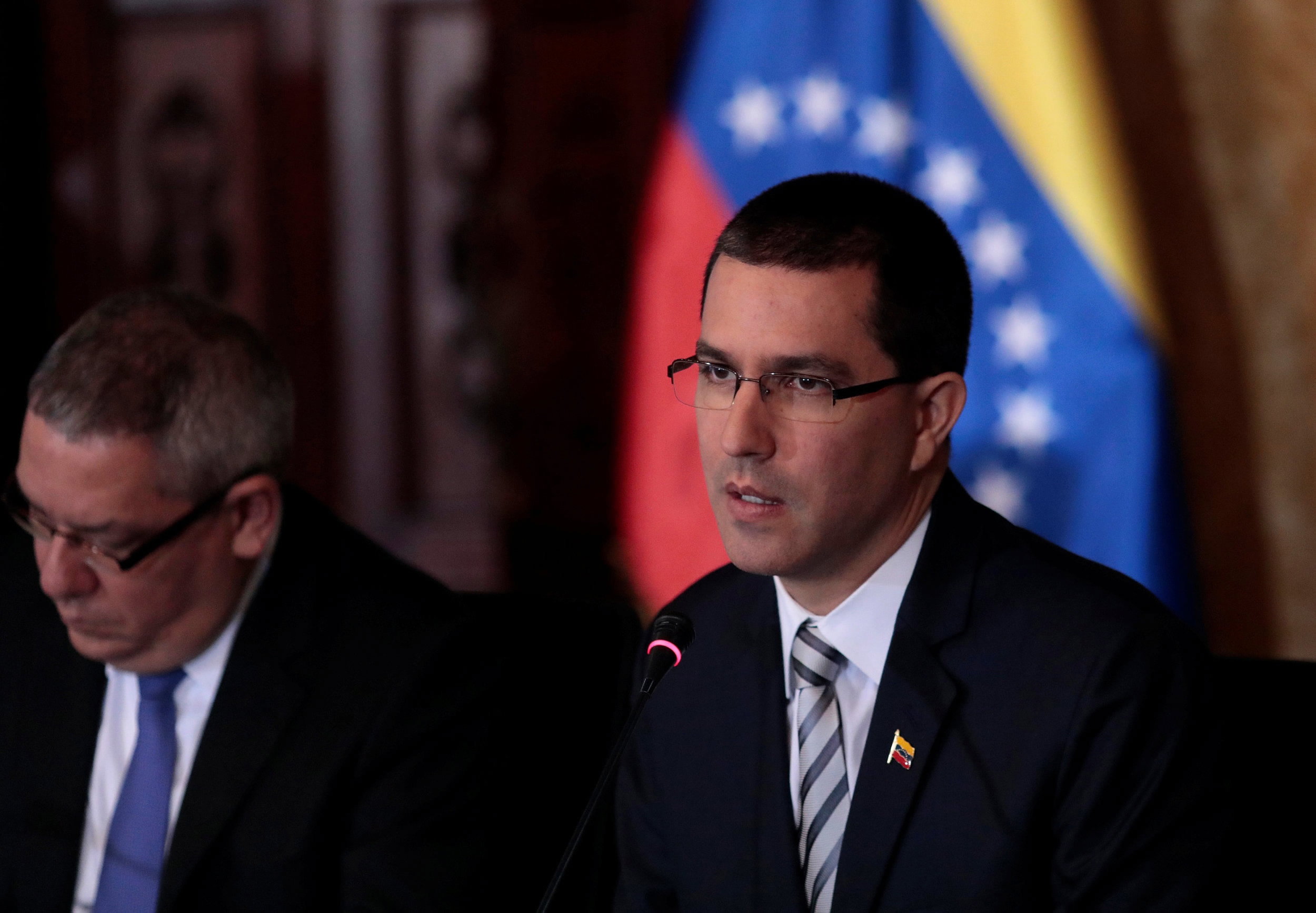
Business
08:55, 26-Aug-2017
Trump slaps sanctions on Venezuela; Maduro sees effort to force default
CGTN

US President Donald Trump signed an executive order that prohibits dealings in new debt from the Venezuelan government or its state oil company on Friday in an effort to halt financing President Nicolas Maduro’s government.
Maduro, who has frequently blamed the United States for waging an “economic war” on Venezuela, said the United States was seeking to force Venezuela to default – but he said it would not succeed.
The order is Washington’s biggest sanctions blow to date against Maduro and is intended to punish his government, which is already reeling from an economic crisis.

Venezuela's President Nicolas Maduro speaks during a meeting at Miraflores Palace in Caracas, Venezuela on August 25, 2017. /Reuters Photo
Venezuela's President Nicolas Maduro speaks during a meeting at Miraflores Palace in Caracas, Venezuela on August 25, 2017. /Reuters Photo
It suggests a weakening in already strained relations between the two countries. Just three days ago, Maduro said the relations between Caracas and Washington were at their lowest point ever.
“All they’re trying to do to attack Venezuela is crazy,” said Maduro on a TV broadcast on Friday. “With the efforts of our people, it will fail and Venezuela will be stronger, more free, and more independent.”
Venezuela faces a severe recession with millions suffering food and medicine shortages and soaring inflation. The South American nation relies on oil for some 95 percent of export revenue.
Citgo Petroleum, the US refiner of Venezuela’s ailing state-run oil company PDVSA, is “practically” being forced to close by the order, warned Maduro, adding that a preliminary analysis showed the sanctions would impede Venezuelan crude exports to the United States.
He said he was calling “urgent” meetings with US clients of Venezuelan oil.
The new sanctions ban trade in any new issues of US-dollar-denominated debt of the Venezuelan government and PDVSA because the ban applies to use of the US financial system.
As a result, it will be it tricky for PDVSA to refinance its heavy debt burden. Investors had expected that PDVSA would seek to ease upcoming payments through such an operation, as it did last year, which usually requires that new bonds be issued.
Additional financial pressure on PDVSA could push the cash-strapped company closer to a possible default.
“They want us to fall into default,” said Maduro, adding that just under two-thirds of Venezuelan bond holders are in the United States.
Maduro insisted that Venezuela would continue paying its debts.
The decision also blocks Citgo Petroleum from sending dividends back to the South American nation, a senior official said, in a further blow to PDVSA’s coffers.
However, the order stops short of a major ban on crude trading that could have disrupted Venezuela’s oil industry and worsened the country’s faltering economy.
It also protects holders of most existing Venezuelan government and PDVSA bonds, who were relieved the sanctions did not go further. Venezuelan and PDVSA bonds were trading broadly higher on Friday afternoon.
New US sanctions 'absurd, hostile'

Venezuela's Foreign Minister Jorge Arreaza (R) speaks during a meeting with accredited diplomatic teams in Caracas, Venezuela August 19, 2017. /VCG Photo
Venezuela's Foreign Minister Jorge Arreaza (R) speaks during a meeting with accredited diplomatic teams in Caracas, Venezuela August 19, 2017. /VCG Photo
Venezuela's Foreign Minister Jorge Arreaza on Friday said that the new US economic sanctions, as well as US President Donald Trump's recent threat of military force against the South American country, are "absurd, hostile" against a "peaceful nation."
He had just finished a meeting with UN Secretary-General Antonio Guterres at UN Headquarters in New York, where a spokesman said Arreaza and Guterres had discussed the situation in the country.
"The secretary-general reiterated his view that a political solution based on dialogue and compromise between the government and the opposition is essential and urgent to address the challenges faced by the country in a context of respect for rule of law and human rights," a UN spokesman said.
While admitting there were divisions in the nation, Arreaza said, "our country is united when it comes to threats, military threats, financial threats. Although some people in the opposition, I must confess, wanted these sanctions against its own people."
14416km
Source(s): Reuters
,Xinhua News Agency

SITEMAP
Copyright © 2018 CGTN. Beijing ICP prepared NO.16065310-3
Copyright © 2018 CGTN. Beijing ICP prepared NO.16065310-3